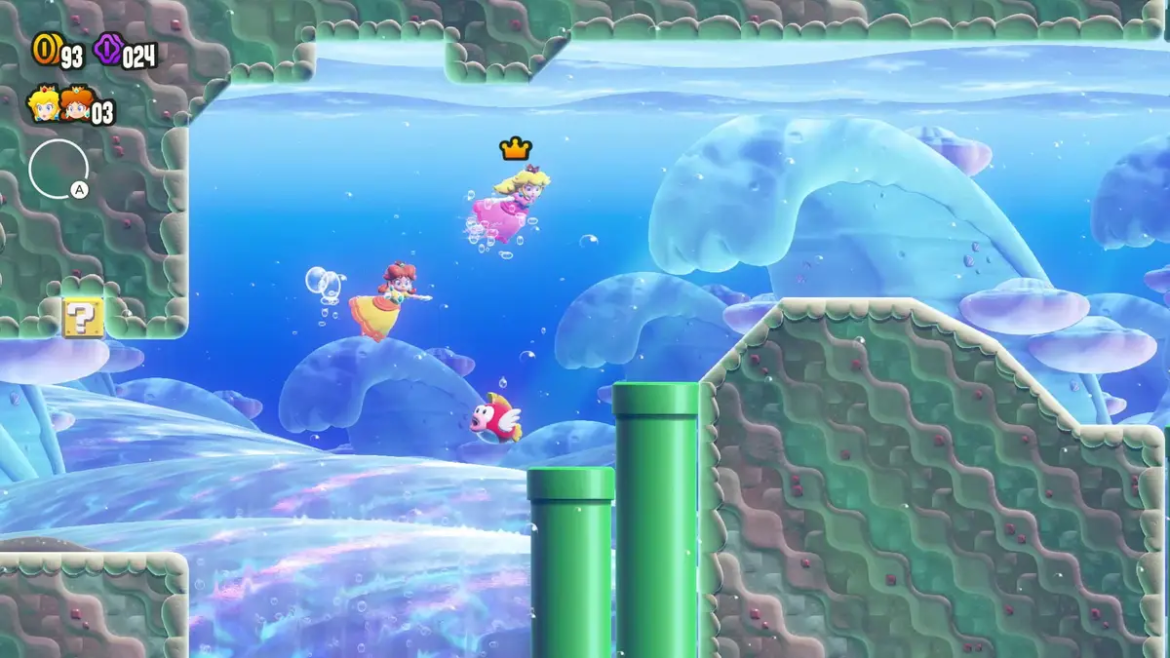Welcome back readers.
The news this week that Uppercut is putting their operations on pause is understandable but still gets me. I’m very glad to see an uptick in independent, direct-support outlets, but I also want to see a level of visibility and sustainability to these efforts that can be enjoyed by more than just the most well-known industry vets, you know? I think positive, transformative change is possible in how we talk about games, about art, and about the wider world around us, but there has to be more to it than just sticking it to the herbs.
This Week in Videogame Blogging is a roundup highlighting the most important critical writing on games from the past seven days.
A Remedy for the Genre
A common theme emerges across all of the inclusions in this introductory section: Alan Wake II is a game unafraid to be itself, regardless of genre or industry expectations.
- Alan Wake 2: The Kotaku Review | Kotaku
Carolyn Petit sees something boldly authentic in Alan Wake II‘s whole thing. - The Exuberant Kitsch of Alan Wake II | Aftermath
Gita Jackson notes how AWII doesn’t let genre get in the way of having its own fun. - Review: Alan Wake II | Kimimi The Game-Eating She-Monster
Kimimi celebrates a game that is completely, unabashedly itself.
“It’s all very strange, but this is one rare game where I’m honestly happy for the worlds within worlds to do their loopy thing, to sit and listen to people talk about all sorts of things that definitely did happen ten minutes ago but now no longer exist. I don’t want Alan Wake II to make any more sense than it already does. I don’t want answers. I don’t want a neat conclusion that ties everything up in a bow. I just want more of whatever the heck the game wants to send my way.”
Content Roadmap
Our next section this week shines a critical light on ever-larger, ever-more-expensive games as a cultural force–they occupy our time and insist upon our attention, but for what purpose? What do they actually have to say?
- Open World Vampires | Unwinnable
Jay Castello asks who consumes and who is consumed in a vast landscape of Content. - Best Of All You Can Play The Whole Game Any Way You Want | Unwinnable
Ed Smith traces the industry’s maximalist approach to the whole ludonarrative dissonance thing.
“The uncanny, infinitely variable and indefinable nature of games, their worlds and their texts – partially defined as ludonarrative dissonance – is no longer an artistic problem for mainstream games, but their central and most profitable characteristic.”
Brief Histories
Now let’s look at historical approaches to games, as our next two featured authors examine both alternative and inadequate treatments.
- “Hampstead” and Interactive Fiction in the UK in the 1980s | The Rosebush
Ian Greener offers a parallel early history of IF, beyond the sphere of Infocom’s dominance. - ‘A Handheld History’ Plays It Safe | PopMatters
Luis Aguasvivas is left wanting for detail and depth when the history of handheld games is reduced to the coffee table format.
“A Handheld History tries to be an almanac of sorts. The attempt is hampered by its adherence to the ongoing and fervent nostalgia-fueled content that is rampant in much of the popular discourse surrounding video games.”
Wondrous Things
Let’s return now to the present as we collect a pair of new critical approaches to very recent games.
- All The Mario World’s A Stage, and That’s Wonderful | cohost
Jeremy Signor traces Mario’s long association with stageplay and observes a culmination in Super Mario Wonder‘s variety show format. - A Beautiful View: Jusant and the Joys of Climbing | Remap
Khee Hoon Chan finds purchase in Jusant‘s thematically and mechanically gratifying approach to climbing.
“On the surface, Jusant may be about the meditative joys of rock climbing, but it’s also so much more: it suggests despite it all, it’s still not too late for us to reconcile our rocky relationship with nature. I can’t help but think that this is an overly optimistic outlook. Yet, it’s that optimism and joy that makes Jusant such a charming and picturesque alpine adventure. It invites you to listen to the scuttering of the pebbles, soak in the monumental views of the mountains, and meditate upon natural wonders that, through your efforts, are on the cusp of revival.”
Critical Chaser
Quite possibly the most fun anyone has had with Cities: Skylines 2 to date.
- My car-free Cities: Skylines 2 dream inevitably devolved into a cruel endurance test | Rock Paper Shotgun
I wonder what horrors Sin Vega built in RollerCoaster Tycoon back in the day.
“I can only admit defeat. My citizens responded to my ever-increasing malice with the drastic collective action technique of ceasing to exist when the boss looks away. I haven’t found their precise limits, as doing so would take longer than I expect to live, but it’s somewhere between “several miles” and “infinity”. I’m actually quite impressed with how far they’re willing to go and the ways they’ll re-evaluate even their current journey, judging by their willingness to retrace their steps and catch a train to another town just so they can use a fucking car. The people, united, will never be defeated. But I will keep trying.”
Subscribe
Critical Distance is community-supported. Our readers support us from as little as one dollar a month. Would you consider joining them?
Contribute
Have you read, seen, heard or otherwise experienced something new that made you think about games differently? Send it in!


